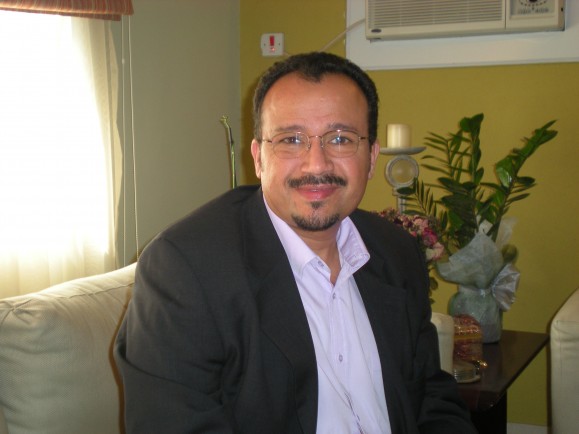Brian Dooley writes about Irish-trained doctors imprisoned for treating protesters.
Ask most people what they know about Bahrain and chances are it won’t be much – the smallest country in the Middle East is
known a bit for being on the Grand Prix circuit and for its pearl industry. In the last few years it has also gained a reputation as the place where the government attacked its nurses and doctors after they treated injured protesters as part of the 2011 “Arab Spring.”
In response to calls for democracy in March and April 2011, the regime arrested thousands of people. Several dozen medics were arrested, leading to an international outcry when they told consistent and credible stories about their mistreatment in custody. Some had worked and trained in Ireland.
Bahrain’s an old-fashioned dictatorship where the king controls the island kingdom’s government and constitution – his uncle has been the unelected prime minister for over 40 years, and most of the
cabinet are members of the ruling family. The U.S. government sees Bahrain as a necessary albeit unsavory ally, and despite some Congressional voices speaking
out against the human rights abuses – notably Congressman Jim McGovern of Massachusetts – criticism of the Bahrain regime has been generally muted. The United States supplies the Bahrain military with nearly all of its equipment and Bahrain is home to the U.S. Fifth Fleet.
On visits to Bahrain for Human Rights First, I’ve recorded testimonies from the medics – how they were handcuffed, blindfolded and tortured into making absurd confessions about conspiring to overthrow Bahrain’s government by armed force. I also attended Bahrain court hearings for the sham trial of 20 medics who were charged with felonies (and another where 27 other medics were charged with less serious offenses), witnessing how their claims of torture were dismissed by the judge.
Four of the doctors in the “felony medics” trial had trained in Dublin at the Royal College of Surgeons Ireland, another had taught at the RCSI campus in Bahrain opened in 2004. All had been tortured into signing confessions to crimes they’d never committed – all were found guilty by a military court and sentenced to between five and 15 years in jail.
Protests from the United Nations, the United States and other governments resulted in a civilian appeal in June 2012 that produced acquittals for nine of them, but Dr. Al Alekry, an orthopedic surgeon who trained in Ireland from 1999-2002 and worked in Temple Street hospital, remains in jail, serving a five-year term.
Another orthopedic surgeon, Bassim Dhaif, also trained in Dublin, as did his brother Ghassan, a consultant in maxillofacial surgery, and Ghassan’s wife Zahra Alsammak, a consultant anesthetist. They were all tortured in custody. So was Fatima Haji, a rheumatologist who taught at the RCSI campus in Bahrain.
Ghassan told me how he was stopped at the airport trying to leave Bahrain in early 2011 with his family. He was beaten by men in masks in front of his wife and children before being taken into custody and tortured for days afterwards.
Dr. Fatima Haji told me how she’d been “blindfolded and handcuffed with my hands behind my back, and beaten…. A female officer hit me on head on both sides at the same time – she was wearing what I later found out was a special electrical band on her hands and she electrocuted me a couple of times – I felt a shock wave through my head. It was very painful and the whole world was spinning. I was beaten again on the head.”
Damian McCormack, a surgeon at Dublin’s Mater Hospital, trained some of the Bahrain doctors in Dublin and has been a prominent campaigner for justice for them. “I remember Ali Alekry as a big, gentle man,” said McCormack. “A hard worker, a mature and spiritual man. To my mind he’s a modern hero.”
McCormack led a delegation of Irish medics and politicians to Bahrain in July 2011 to investigate what had happened, and is disappointed at the reaction from the RCSI and other Irish medical bodies to the targeting of the Irish-trained doctors and other medics in Bahrain. He’s been vocal in criticizing the RCSI’s Bahrain branch for forcing its students to swear an oath of loyalty to the king and to sign a non-protest pledge.
The controversy has exploded with new life in recent months as the RCSI in Bahrain seeks accreditation from the Irish Medical Council (IMC). At an Oireachtas committee hearing in April 2014, former Professor of Medicine and Chairman of the Department at RCSI-Bahrain Prof Jim Finucane denied torture ever occurred in Bahraini hospitals between 2008 and 2013, contrary to reports from leading human rights organizations.
The IMC is due in Bahrain soon to assess the college’s bona fides for accreditation. Meanwhile, no senior Bahraini official has been held accountable for the torture inflicted on the Irish-trained and other medics, and Dr. Alekry remains in jail.
Brian Dooley is the Director, Human Rights Defenders at Human Rights First @dooley_dooley


Hussein Dhaif was my Bahraini counterpart while I was British Council-appointed Senior TEFL Advisor to the Ministry of Education 1970-78 and 1981-83. During that time I was also President of the Bahrain Irish Society and part-time English News Editor/presenter at Bahrain Television. If possible, I would very much like to make contact with Hussein. We now live in Brisbane, where our daughter, who was born (1978) in Bahrain, is a professor at UQ.